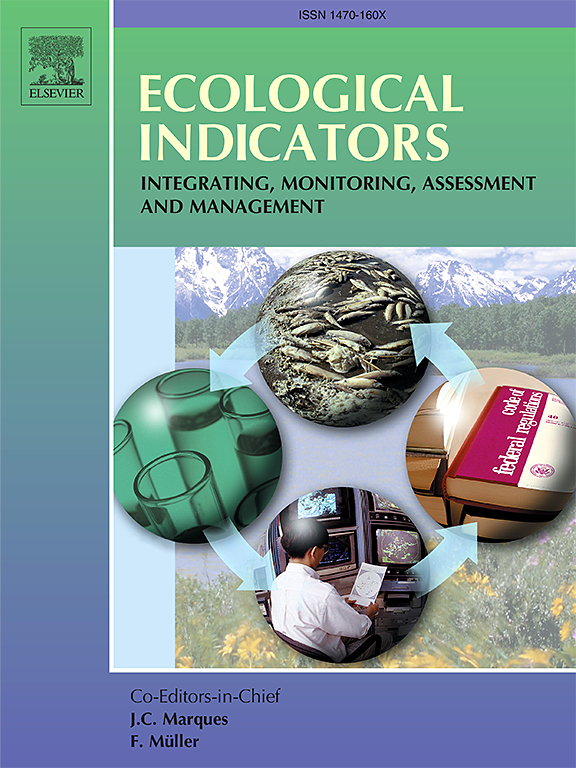Valuing the reciprocating services that humans can provide to ecosystems
IF 7
2区 环境科学与生态学
Q1 ENVIRONMENTAL SCIENCES
引用次数: 0
Abstract
Long-term sustainability requires that humans consider not only what ecosystems can do for them, but also how humans can ‘give back’ or reciprocate. Indigenous Australians call this ‘caring for country’. Industrial societies have routinely undervalued both the ecosystem services (ES) that nature provides to humans and the reciprocating services (RS) that humans provide to ecosystems. The policy challenge is to find ways of encouraging more RS in industrial societies. The practice of monetarily valuing ES helps highlight their importance and has brought the environment to the forefront of many international policy discussions. We argue that sustainability could be further enhanced by better valuing RS. First, the simple acknowledgement and celebration of RS (without monetary valuation) could change institutions, social norms, and behaviours. Second, numerous institutions now provide financial incentives for people to undertake nature-positive projects (a type of RS), but nature-positive investments are hampered by information failures. Comprehensive assessments of the expected value of proposed projects, could fill information gaps and guide investments towards projects that are likely to generate the most benefit. But these are difficult to do well. We discuss some of the particular difficulties of generating meaningful value estimates for RS that generate diverse benefits at large scale, or that create change in highly connected systems. We note the need for more transdisciplinary research to further improve methods; arguing that if we only do what we are currently good at (valuing discrete benefits at small scale and using crude approaches to scale upwards) then we will continue to overlook, undervalue and under resource many of the critically important RS that support us all.
估价人类可为生态系统提供的互惠服务
长期的可持续性要求人类不仅要考虑生态系统能为他们做什么,还要考虑人类如何“回馈”或回报。澳大利亚土著称其为“关爱国家”。工业社会通常低估了自然为人类提供的生态系统服务(ES)和人类为生态系统提供的互惠服务(RS)。政策上的挑战是找到在工业社会鼓励更多RS的方法。对可持续经济环境进行货币评估的做法有助于突出其重要性,并将环境问题置于许多国际政策讨论的前沿。我们认为,通过更好地评估社会责任,可以进一步提高可持续性。首先,对社会责任的简单认可和庆祝(不需要货币评估)可以改变制度、社会规范和行为。其次,许多机构现在为人们从事自然积极项目(RS的一种)提供财政激励,但自然积极投资受到信息缺失的阻碍。对拟议项目的预期价值进行全面评估,可以填补信息空白,并引导投资投向可能产生最大效益的项目。但这些都很难做好。我们讨论了为RS生成有意义的价值估计的一些特殊困难,这些价值估计在大规模上产生各种各样的利益,或者在高度连接的系统中产生变化。我们注意到需要更多的跨学科研究来进一步改进方法;他认为,如果我们只做我们目前擅长的事情(在小范围内评估离散的利益,并使用粗糙的方法来扩大规模),那么我们将继续忽视,低估和缺乏资源的许多至关重要的RS支持我们所有人。
本文章由计算机程序翻译,如有差异,请以英文原文为准。
求助全文
约1分钟内获得全文
求助全文
来源期刊

Ecological Indicators
环境科学-环境科学
CiteScore
11.80
自引率
8.70%
发文量
1163
审稿时长
78 days
期刊介绍:
The ultimate aim of Ecological Indicators is to integrate the monitoring and assessment of ecological and environmental indicators with management practices. The journal provides a forum for the discussion of the applied scientific development and review of traditional indicator approaches as well as for theoretical, modelling and quantitative applications such as index development. Research into the following areas will be published.
• All aspects of ecological and environmental indicators and indices.
• New indicators, and new approaches and methods for indicator development, testing and use.
• Development and modelling of indices, e.g. application of indicator suites across multiple scales and resources.
• Analysis and research of resource, system- and scale-specific indicators.
• Methods for integration of social and other valuation metrics for the production of scientifically rigorous and politically-relevant assessments using indicator-based monitoring and assessment programs.
• How research indicators can be transformed into direct application for management purposes.
• Broader assessment objectives and methods, e.g. biodiversity, biological integrity, and sustainability, through the use of indicators.
• Resource-specific indicators such as landscape, agroecosystems, forests, wetlands, etc.
 求助内容:
求助内容: 应助结果提醒方式:
应助结果提醒方式:


